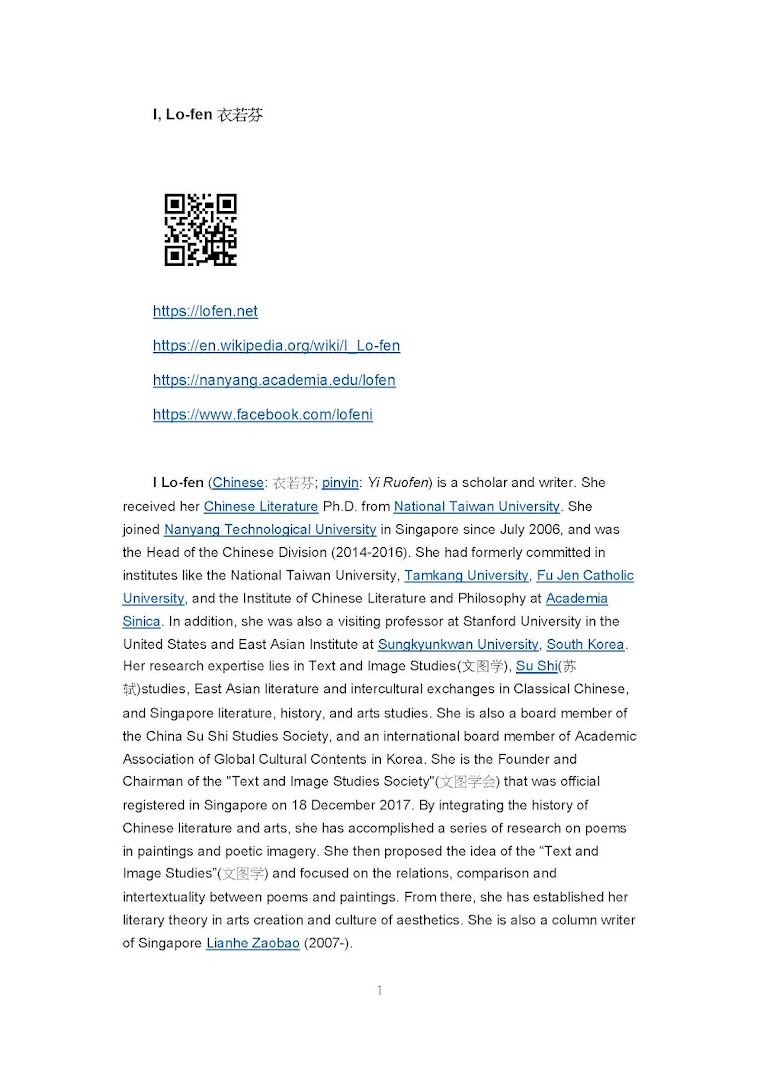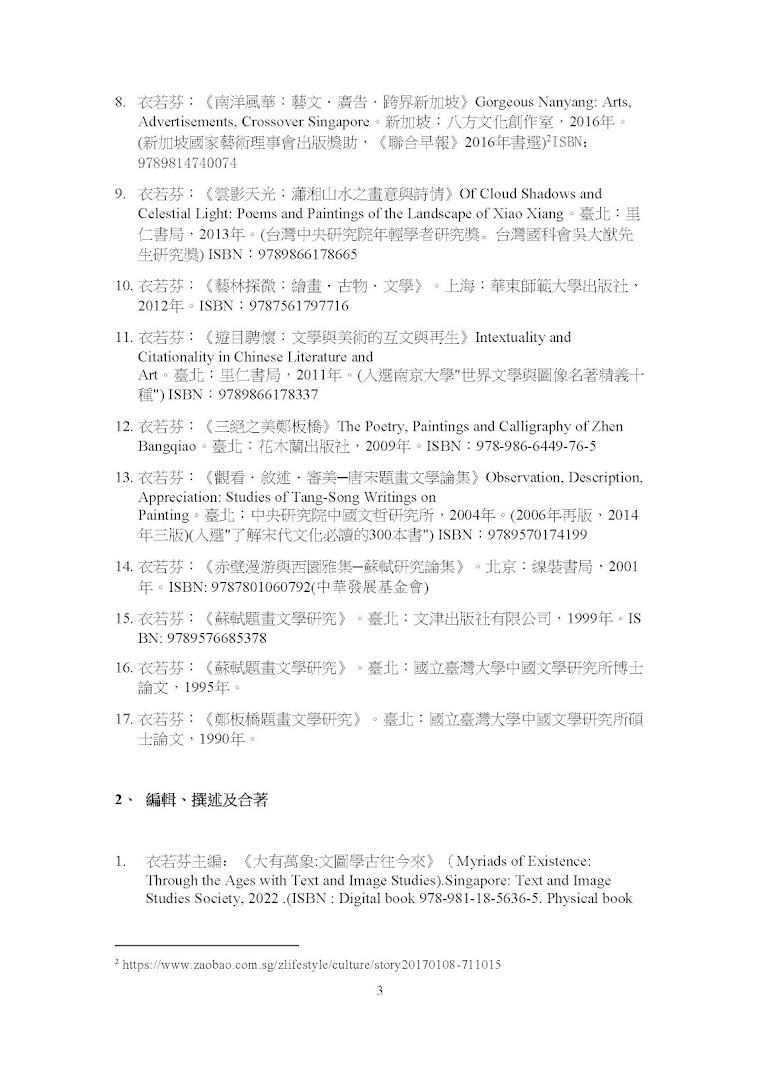这篇文章本来要想定为《AI也怕马家辉》。后来想想,这么“狂妄”的题目,应该要留给马老师自己写。
“AI来了,作家怎么办?”对马老师是一个伪问题。17岁就开始写专栏,洋洋洒洒40多年,专业熟练的写作者怎么会担心人工智能太过强大,威胁自己的创作?
对谈开场时我简单介绍了1956年以来人工智能的发展、停滞和近年的热潮。开一点玩笑,用
“有一个男人叫马家辉”为提示词,想象AI可能生成怎样的小说?怎样的图像和视频?但是,无论怎么生成,都不如作家自己现身说法。香港三部曲的《龙头凤尾》、《鸳鸯六七四》已经出版,进行中的《双天至尊》肯定也是亲力完成(AI一边凉快去)。
马老师用了很传神的形容:写作时的狼狗时光(The hour between
dog and wolf)。清晨或是傍晚,天色朦胧,视线模糊,远方朝我们走来的,是危险的狼?还是可爱的狗?不确定又提心吊胆。写作的困难、挣扎、痛苦,化为文字表达以后的满足和喜悦。这独自煎熬的过程,AI不会懂得,用AI写作也不会经历。
用功的作家,肯定也是认真的读者。于是话题很自然地转向“AI来了,读者怎么办?”我说:AI很快地生成连串文字,是字字珠玑,还是字字垃圾,需要读者的判别能力。
马老师说:既然要认真阅读,钱钟书那句“假如你吃了个鸡蛋觉得不错,何必认识那下蛋的母鸡呢?”就要打折扣—假如我们读了一本好看的文学作品,怎么可以轻易放过知道创作者?他的成长历程、书写背景、人生经验…在在是培育酝酿作品的因素。马奎斯小说《爱在瘟疫蔓延时》(《霍乱时期的爱情》)男主角坚守50多年的爱情、张爱玲和胡兰成相恋前后的身体描写,这些,都不是无出身、无来由的AI可以凭空制造的。
作者通过作品传达价值观、生命的喜悦、死亡的恐惧,和读者建立默契联系。AI没有成长史,我们不知道AI几岁,它生成的作品简直像情感诈骗!
归根结底,AI没有肉身的重量。AI不会死。
我想:肉身承载着喜怒哀乐爱恶欲;承载着巧慧和痴愚;承载着生老病死。
肉身有限,随佛家说的“成、住、坏、空”变化。
老子《道德经》说的:“吾所以有大患者,为吾有身。及吾无身,吾有何患。”所有的感官知觉,来自眼、耳、鼻、舌、身、意,受到外界物象刺激和内在思维波动,引起我们的欲望、情绪和想法。如同叔本华感慨的:生命就是一团欲望,欲望得到了满足就会无聊;欲望得不到满足就会痛苦。人生就像钟摆一样,在痛苦和无聊之间摇摆。这就是老子指出的“大患”。不把肉身当唯一严重的事;或者说:生有肉身而不执着于肉身,以至于“无身”,就没有“患”了。
AI无身无患,人们发明AI,训练它成为智能体,有了AI的协助,人类还是有身有患。惟其肉身有重量,我们明明白白活着。
准备为这篇文章收尾,我让AI生成配图,有趣的现象发生了。
我起初用中文提示,要求生成“肉身的重量”的图像。Copilot回应:有些文字会遭到自动封锁,所以不能完成。于是我改成英语的“The Weight
of the Flesh” ,仍然一样。到底是哪个文字涉及敏感而受阻?接着我改成同主题抽象化的图像,才有了“充满筋肉的人体”背负另一个“充满筋肉的人体”的画面。类似的“充满筋肉的人体“也生成于Germini和ChatGPT。似乎对于AI, “肉身”的意思就是躯体,图像直接转译了文字。
而我们知道的“肉身的重量”,指的是“道成肉身”,是整体的生命情境,很难图像化。即使前文举的《道德经》的例子,谈的还是不限于躯体。这使我更加理解马老师在谈话结束前引用维特根斯坦的话:“语言的边界就是世界的边界。”至少目前,AI 对象征和概括性的语言认识还在某种边界,我心头的重量,稍稍可以释怀了。
2024年4月27日,新加坡《联合早报》“上善若水”专栏
The original title of this article was
supposed to be "Even AI Fears MA Ka Fai." Later on, I thought that
such an "arrogant" title should be reserved for Prof Ma himself to
write.
"When AI Comes, What Should Writers
Do?" poses a pseudo-problem for Prof Ma. Having started writing columns at
17 and continuing prolifically for over 40 years, how could a seasoned
professional writer worry about artificial intelligence being too powerful and
threatening their creativity?
At the beginning of our conversation, I
briefly introduced the development, stagnation, and recent surge of artificial
intelligence since 1956. I made a light joke by using the prompt "There is
a man named MA Ka Fai," imagining what kind of novel, image, and video AI
could generate. However, no matter what it generates, it couldn't compare to
the writer speaking for himself. Prof Ma's Hong Kong Trilogy, with published
works "Dragon Head, Phoenix Tail" and "Mandarin Duck 674,"
and the ongoing "Supreme Dual Heaven," are certainly completed with
personal effort (AI can cool off on the side).
Prof Ma used a vivid description: the hour
between dog and wolf. Is it a dangerous wolf or a lovable dog approaching us in
the dim light of dawn or dusk, when vision is blurred? The uncertainty keeps us
on edge. The difficulties, struggles, and pains of writing, once transformed
into written words, bring satisfaction and joy. This torturous process is
something AI cannot understand, and using AI to write won't experience this.
Diligent writers are certainly serious
readers too. Thus, the topic naturally shifted to "When AI Comes, What
Should Readers Do?" I mentioned that AI quickly generates strings of text,
which could either be pearls or trash, requiring readers' discernment.
Prof Ma said: If we are to read seriously,
Qian Zhongshu's saying "If you enjoy an egg, why need to meet the hen that
laid it?" must be discounted—if we've enjoyed a great literary work, how
can we easily pass up knowing about the creator? Their growth process, writing
background, life experiences... all these are factoring that nurture and
ferment the work. The decades of love upheld by the male protagonist in Gabriel
García Márquez's novel "Love in the Time of Cholera," the physical
descriptions before and after the affair between Eileen Chang and Hu Lancheng, these
are not something an AI without origin can fabricate out of thin air.
Through their works, authors convey
values, the joys of life, the fear of death, and establish a tacit connection
with readers. AI lacks a history of growth; we don't know how old it is, and
its generated works feel like emotional fraud!
Ultimately, AI lacks the weight of a
physical body. AI will not die.
I think: The physical body carries joy,
anger, sorrow, love, evil desires; it carries cleverness and foolishness; it
carries birth, aging, sickness, and death.
The physical body is transient, changing
as described in Buddhism's "formation, existence, destruction,
emptiness."
As Laozi said in the "Tao Te
Ching": "The reason I have great trouble is that I have a body. When
I no longer have a body, what troubles will I have?" All sensory
perceptions, stimulated by external objects and internal thoughts, provoke our
desires, emotions, and thoughts. As Schopenhauer lamented: Life is but a mass
of desires, which become boring when satisfied and painful when not. Life
swings like a pendulum between pain and boredom. This is the "great
trouble" Laozi pointed out. Not treating the physical body as the only
serious matter; or rather, having a body without clinging to it, reaching a
state of "bodylessness," thus having no "troubles."
AI, being bodiless and trouble-free, while
humans invent and train it to become an intelligent agent, still leaves humans
with a body full of troubles. Yet it is this weight of the flesh that lets us
live clearly and plainly.
Preparing to conclude this article, I had
AI generate illustrations, and an interesting phenomenon occurred.
I initially used the Chinese prompt to
generate images of "the weight of the flesh." Copilot responded: Some
texts are automatically blocked, so it couldn't complete the task”. So, I
switched to the English "The Weight of the Flesh," but the result was
the same. What exactly is sensitive and blocked? I then changed to an abstract
theme of the same topic, and finally got an image of "a muscular human
body" carrying another "muscular human body." Similar
"muscular human body" images also generated from Germini and ChatGPT.
It seems that for AI, "flesh" means the body, directly translating
the text.
Yet what we know as "the weight of
the flesh," referring to "the Word became flesh," signifies the
overall life situation, difficult to visualize. Even the example from the
"Tao Te Ching" discussed earlier is not limited to the physical body.
This deepens my understanding of Prof Ma's reference to Wittgenstein at the end
of our conversation: "The limits of my language mean the limits of my
world." At least for now, AI's recognition of symbolic and abstract
language remains bounded, slightly easing the weight on my mind.
April 27, 2024, 'Shang Shan Ruo Shui' (The
highest goodness is like water)column, Lianhe Zaobao, Singapore."














